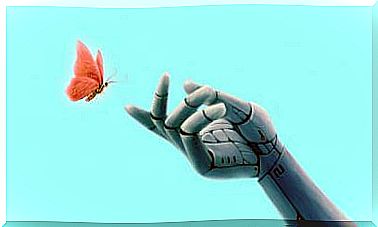Averting Childhood Obesity Means Ensuring The Health Of Our Children

Until a few decades, a chubby child was seen as a symbol of health. This was true to the point that the mothers of less “full” children felt uncomfortable and were subject to criticism, even labeled as bad progenitors. With scientific progress, this vision has changed, it has transformed. Nowadays we know that childhood obesity is not synonymous with good health, neither present nor future.
Nor does it indicate that the family has more or less chance to feed the child or that the child receives the attention or care he or she needs. Well, apparently it is not that easy to make minors have a weight in the norm. What can be done about it?
The psychological dangers of childhood obesity
We are all aware of the health problems associated with being overweight. Childhood is certainly not exempt from the dangers that can arise from a high body mass index. In fact, diseases such as type II diabetes or high cholesterol can appear along this line.
When we talk about the negative consequences of this physical condition, however, we rarely allude to the emotional and psychological problems associated with childhood obesity. Overweight little ones can suffer from low self-esteem or dissatisfaction.
It should not be forgotten that overweight people are usually seen as not deserving of success or popularity, and this belief is also passed on to the little ones. Children can suffer from anxiety and depression, among other ailments. It can also promote the onset of future eating disorders.
What can be the causes of childhood obesity?
nutrition is undoubtedly the basis that determines whether a child suffers from childhood obesity or not.
In this sense, it must be borne in mind that many people use food as a means to reduce their emotional distress. In other words, they eat more and choose less healthy foods when they experience negative emotions. If this becomes a habit, you risk entering a vicious circle.

To understand better: the child eats because he feels bad and the negative emotions seem to disappear momentarily. In this way, however, the child gets fat, and with it the discomfort will also return … and how will he try to reduce it? Taking a new feast. Did you understand where we want to go?
In addition to using nutrition as an emotional regulation mechanism, there are other daily habits that influence the predisposition to obesity. Among the elements of risk we find the habit of letting the child eat alone, making him overflow with sweets, skipping breakfast or making him sleep little. Finally, we must also consider the number of hours he spends in front of the television and whether he is used to physical activity or not.
How can childhood obesity be combated?
Well, what can we do in our own small way to prevent children from suffering from obesity? First you need to establish some rules to be respected at home that serve to strengthen a healthy lifestyle. For example, fix five meals a day or have breakfast every day with dairy products, cereals and fruit.
Furthermore, at least one meal a day between lunch or dinner must be done in the family all together: it is very important that both parents and children eat everything on the table. It should not be forgotten that the example of parents is fundamental, they are the model for their children.
As for nutrition, we try not to use it as a ploy to neutralize the boredom or emotional discomfort of the child, in order to prevent it from entering the vicious circle mentioned above. At the same time, the consumption of sweets must be limited. It is also good to set a maximum time to go to bed in the evening, bearing in mind that children should enjoy at least 10 hours of sleep.

Let’s talk now about the use of new technologies. To avoid a sedentary lifestyle, the time allowed for children to devote to technology must be limited to two hours. It is also very important to carry out physical activity every day, such as walking, going to play in the park or in the garden or doing a sport … Sow in your children the passion for a healthy weight and lifestyle!
Images courtesy of Kelly Sikkema, Annie Spratt, and Caroline Hernandez









